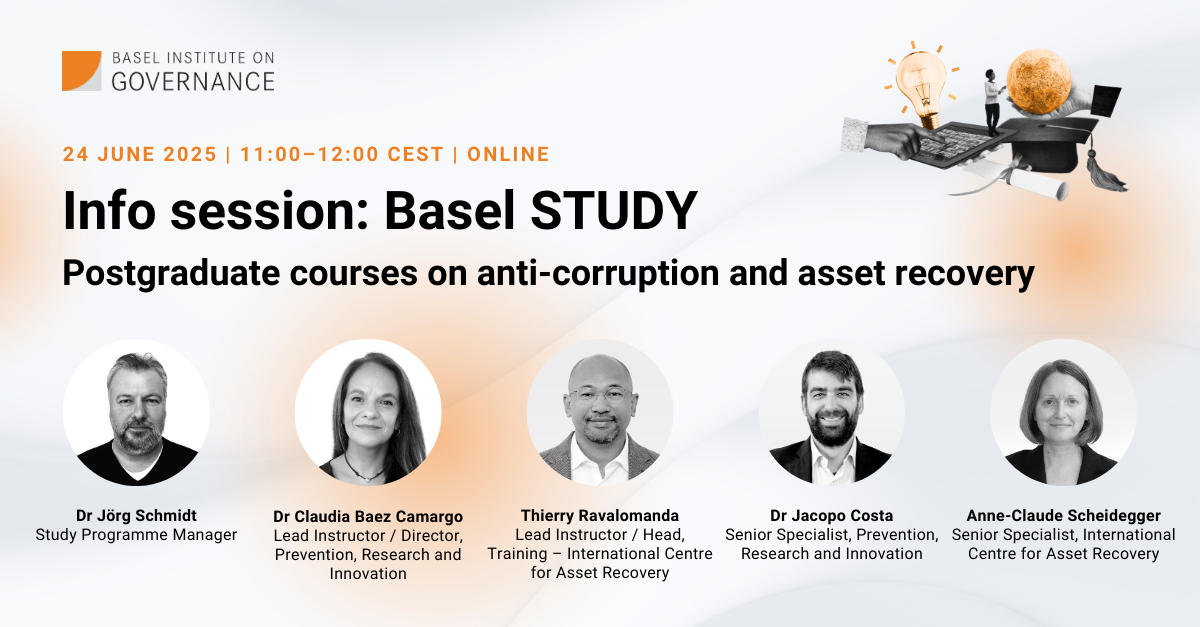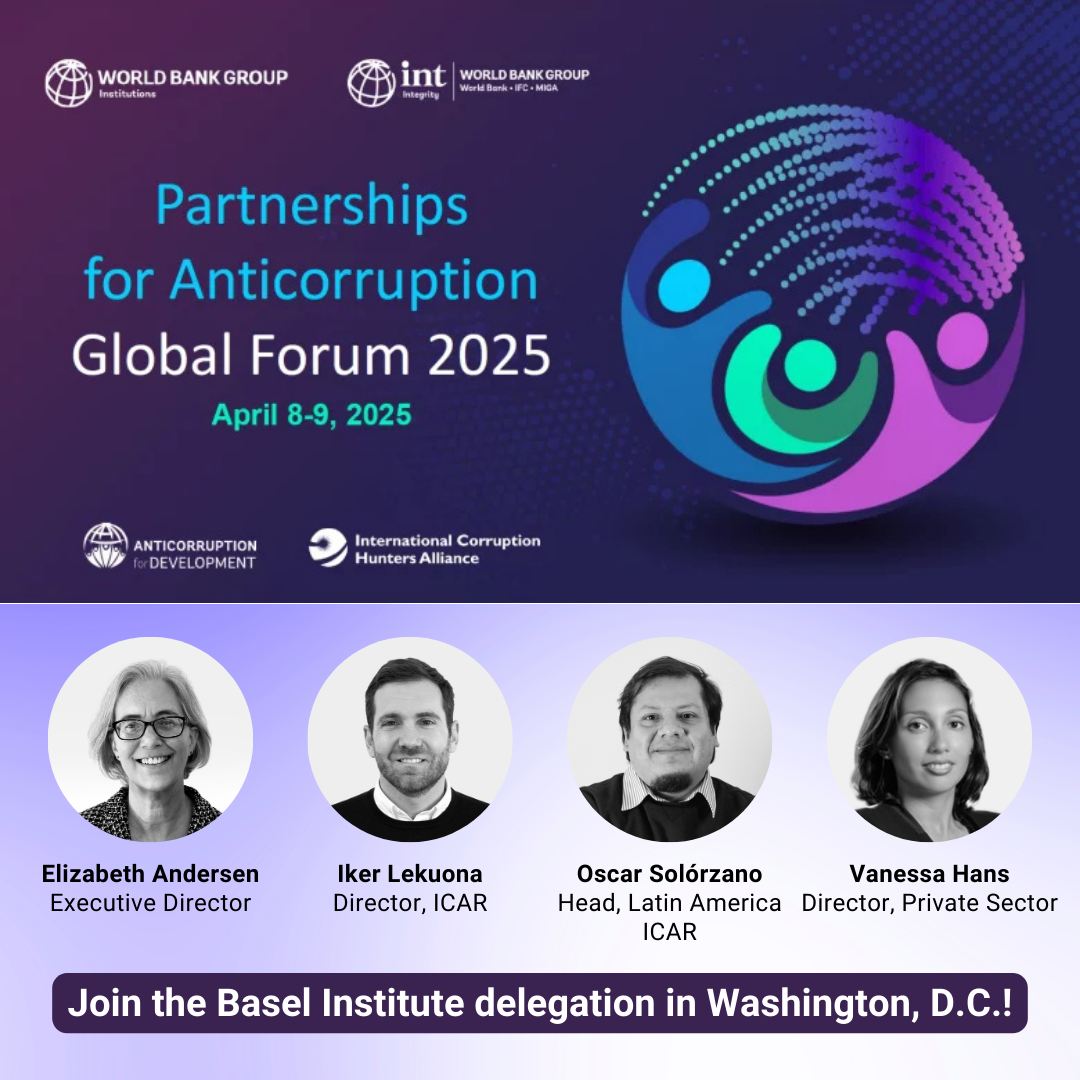As corruption becomes more sophisticated, anti-corruption training must keep pace. In a recent webinar, experts from the Basel Institute shared insights on how technology has strengthened training efforts for law enforcement practitioners worldwide. They also explored exciting new applications of artificial intelligence (AI) to further enhance training and learning experiences.
A veces parece que el apoyo de alto nivel a la lucha contra la corrupción y la delincuencia se da la vuelta. Es el caso de Perú, país estrechamente asociado al Instituto de Basilea sobre la Gobernanza desde hace más de una década
Sometimes it seems like high-level support for the fight against corruption and crime is being turned on its head. That includes in Peru, a close partner country of the Basel Institute on Governance for more than a decade.
Two recent EU publications underscore the central role of corruption and money laundering in enabling organised crime and threatening security – and how essential it is to invest more in efforts to investigate, seize and confiscate criminal assets.
Europol’s 2025 Serious and Organised Crime Threat Assessment (SOCTA) painted a sobering picture of how organised crime is “evolving at an unprecedented pace”, with corruption and money laundering as key enablers.
Despite the increasing use of digital payment methods, cash is still king in many economies – including criminal economies. It remains the most-used payment option across Africa, the Middle East and Latin America, and accounted for over USD 7.6 trillion in consumer expenditures throughout 2022.
That’s a challenge when investigating financial crimes. How can you “follow the money” without records of bank transfers, debit or credit card payments, or digital wallet transactions?
This unique programme will give you a solid understanding of "following the money" and asset recovery as a tool to tackle financial crime.
State parties to the UN Convention Against Corruption are already obligated to identify, confiscate and return proceeds of corruption and money laundering that have entered their financial systems. As this often includes money stolen from states receiving development aid, maximising efforts to fulfil this obligation could offset some of the worst effects of recent aid cuts.
Zambia: Five local trainers certified to train peers in financial investigations and asset recovery
Congratulations to five talented individuals from Zambia’s law enforcement agencies and prosecution service, who have successfully completed the train-the-trainer programme of our International Centre for Asset Recovery (ICAR).


